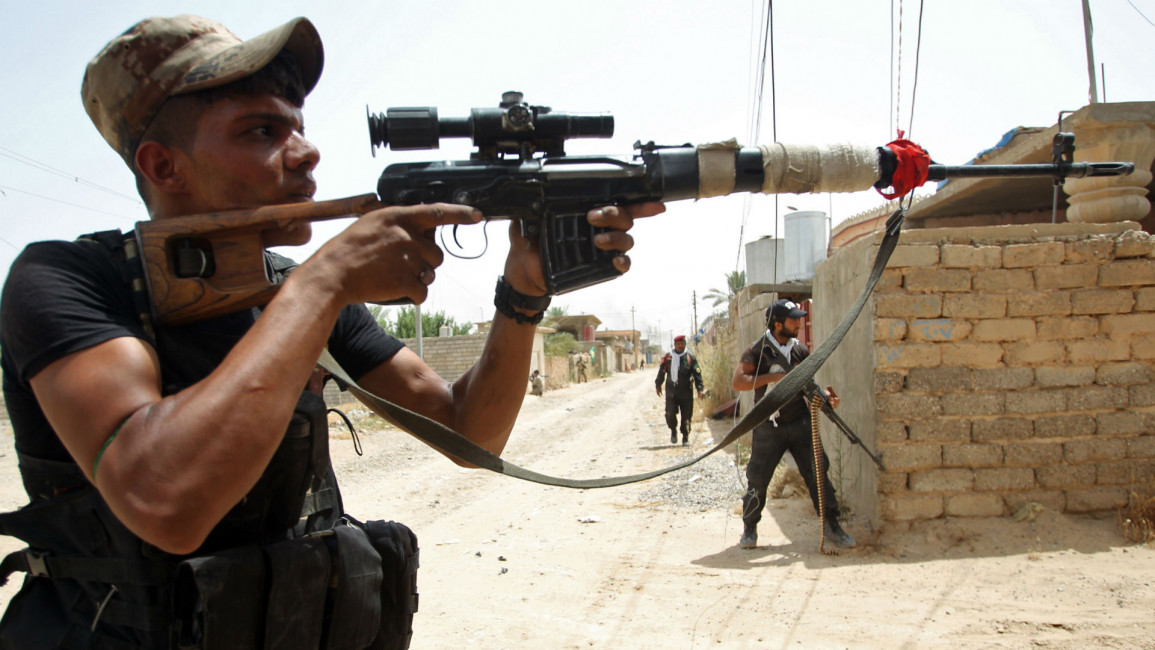Islamic State in Iraq's Baiji preparing for Mosul battle
The group, which declared a caliphate last year stretching across the border into Syria, continues to dispatch reinforcements despite losing about 500 fighters between mid-July and early September, a US official told Reuters on the condition of anonymity.
The Iraqi army's failure to recapture the country's largest oil refinery from Islamic State after 15 months of fighting is calling into question the government's plans to retake the northern city of Mosul from the jihadists.
Iraq's military has been trying to build momentum at the Baiji refinery and in Anbar province in the west before attempting to seize Mosul, the biggest prize in the war against the group.
Officials say the army should secure gains in those areas before setting its sights on Mosul, the largest city in the north. Advances in Anbar's vast desert terrain since the provincial capital Ramadi fell in May have progressed fitfully.
IS could be seeking to move the anticipated battle from Mosul to Baiji, to keep its "state" away from danger, and the organisation may do everything in its power to protect and fortify the town.
A Mosul Provincial Council member has told al-Araby al-Jadeed that "(IS) is manoeuvring silently inside the city, and is working on fortifying the centre of its 'caliphate' from any potential danger, as it is certain that the battle is near and will be led by the Americans."
"The organisation is repositioning and heavily preparing its troops, and is focusing on strengthening the peripheries of the province from most sides, and securing the road between Mosul and Syria, to be able to maintain supplies and military support for the province," he explained.
Baiji Local Council member, Ghassan Jubara said: "The organisation has transferred a large number of troops into the town in the past few days," adding that IS had lately started to fortify the town.
"IS is building earth barriers and distributing its troops on semi-fixed positions on the outskirts of the areas under its control, as well as the presence of mobile combat troops, which carry out attacks every now and then," he added.
He said that fortifications indicate a 'significant change' in Islamic State combat strategy, as the organisation used to
| The insurgents plant homemade explosive devices in houses and on roadsides, bogging down their enemies. |
depend on the hit-and-run approach in its fights, and did not hole up in its positions this way.
The group's fighters there are estimated between the high dozens and low hundreds, according to Baiji mayor Mahmoud al-Jabouri and a source in the Iraqi army's command centre for Salahuddin province where the town is located.
The insurgents plant homemade explosive devices in houses and on roadsides, bogging down their enemies.
They have erected barricades on streets and posted snipers and machine gunners in houses and other tall buildings in some central districts they control, Jabouri said.
The militants detonate car bombs and clash with government forces without making significant advances on the ground.
Security forces have cut a supply line from the west, but Islamic State maintains routes between northern and eastern areas of Baiji to points further north, the military source said.
That allows it to undermine security forces at the refinery and prevent them from opening the main route through Baiji, critical for sending troops and supplies to any attempt to retake Mosul.
Complex tribal dynamics and oil wealth from the refinery have complicated government attempts to wrest control of Baiji from insurgents since the US invasion in 2003, said Michael Knights, an Iraq expert at the Washington Institute think-tank.
"Nobody ever takes Baiji," he said. "It was out of bounds to multinational forces in Iraq the whole time. It was never liberated, it was never surged."
Knights said Baiji's fragmented tribes make it difficult to forge consensus among local leaders, while insurgents have used money from refining and smuggling oil to co-opt the local population.
Digging in
Around 1,500 pro-government militia fighters arrived earlier this month to begin fortifying southern and western parts of Baiji with trenches and barriers, Jabouri and the military source said.
The fighters, including some from a group that includes Iraqi Shia militias who have fought alongside troops loyal to Syrian President Bashar al-Assad, supplement 6,000 regular forces.
Iraqi counter-terrorism forces control southern and western districts of the town, while federal police hold some areas in the north, the military source said.
| Washington and Tehran are competing for influence in Baghdad. |
Other militia fighters, under the banner of government-run Hashid Shaabi or Popular Mobilisation Forces, also operate in some eastern neighbourhoods, the military source said.
A US official, speaking on condition of anonymity, described the situation as static, with Iraqi security forces controlling about 20 percent of both the refinery and the town and the rest of the area either contested or under Islamic State control. Reuters could not independently verify those estimates.
Spokesman Ahmed al-Asadi said the Hashid fighters numbered in the thousands.
"Throughout the past year, we have learned that in any fighting position the army alone cannot win and the Hashid alone cannot win," said Asadi.
However, that cooperation is threatened by regional
rivalries on the battlefield and in Baghdad politics.
Prime Minister Haider al-Abadi faces resistance to the integration of the Hashid into the regular security forces and to reforms that would sideline politicians with ties to Iranian-backed militias.
Washington and Tehran are competing for influence in Baghdad but should not allow that rivalry to benefit Islamic State, said Hiltermann of the International Crisis Group.


![The White House Correspondents' dinner is seeing renewed scrutiny amid Israel's war in Gaza. [Brooke Anderson/The New Arab]](/sites/default/files/styles/image_330x185/public/2024-04/IMG_5497.jpg?h=71976bb4&itok=iSygAqbR)